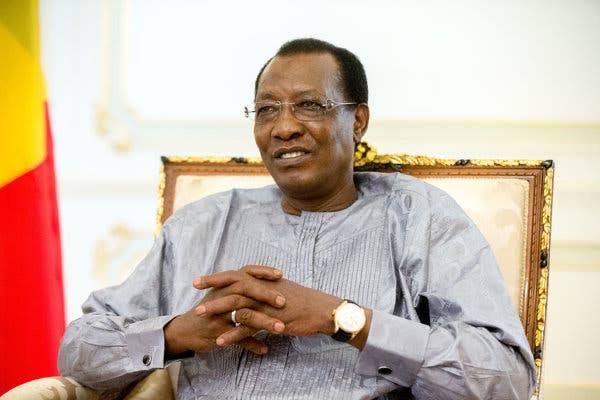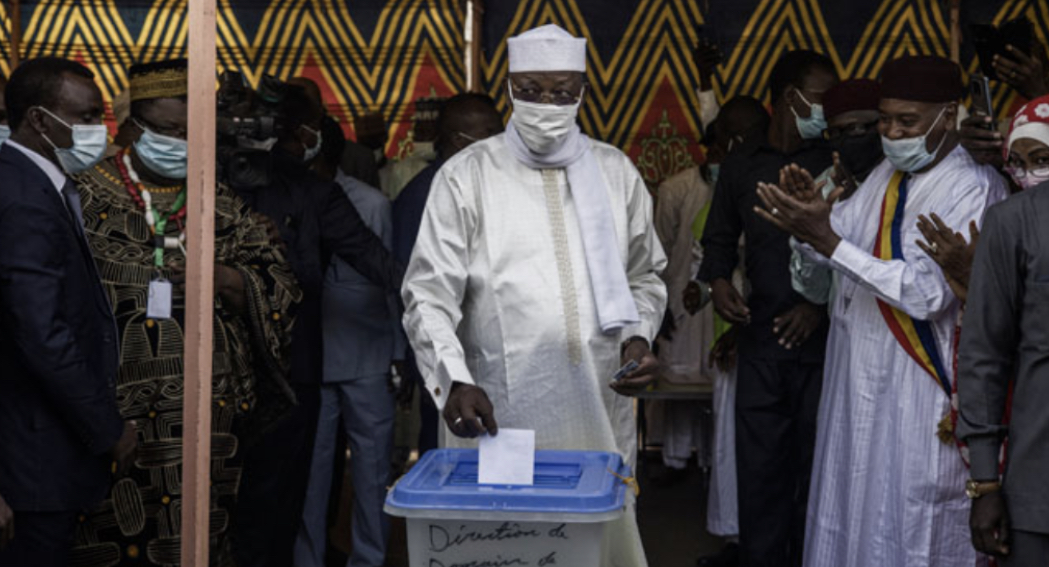68-Year-Old Chadian President Deby Wins Sixth Term, Extending 30 Years In Power
 Chad’s long-ruling President, Idriss Deby has been re-elected to his sixth term with 79.32 percent of the votes cast in April 11 election, according to provisional results from the electoral commission.
Chad’s long-ruling President, Idriss Deby has been re-elected to his sixth term with 79.32 percent of the votes cast in April 11 election, according to provisional results from the electoral commission.
Former prime minister Albert Pahimi Padacke received just 10.32 percent in the presidential vote, while turnout was 64.81 percent, Independent National Electoral Commission (CENI) chairman, Kodi Mahamat Bam said on Monday.
The first female president candidate in Chad’s history, Lydie Beassemda, came third with 3.16 percent.
The provisional results still need to be approved by the Supreme Court after it studies potential legal appeals.
After more than three decades in power, the victory of 68-year-old Deby was never in serious doubt after a campaign in which he faced a divided opposition lacking a major rival candidate and demonstrations were banned or dispersed.
Officially nine candidates were running against Deby, but three withdrew and called for the vote to be boycotted — though the Supreme Court kept their names on the ballots.
Deby was the first to cast his ballot at a polling station in the capital N’Djamena last week.

He is one of Africa’s longest-serving leaders and an ally of Western powers in the fight against militants in West and Central Africa.
Deby told journalists after voting;
I’m calling on all Chadians to come out and vote for the candidate of their choice who will have to tackle the major challenges facing our country over the next six years.
He seized power in 1990 in an armed rebellion, and in 2018 pushed through a new constitution that could let him stay in power until 2033 – even as it reinstated term limits.
Deby has relied on a firm grip over state institutions and one of the region’s most capable militaries to maintain power.
He recently said he knew in advance that he would win again “as I have done for the last 30 years“.
Several leading opponents boycotted the race, including the 2016 runner-up Saleh Kebzabo, who has vowed to make Chad “ungovernable” if Deby wins.
Chad has come under increasing public pressure over a flagging economy as low prices for its main export, oil, in recent years forced cutbacks in public spending and sparked labour strikes.
Deby has faced repeated insurgencies in the desert north and is also dealing with mounting public discontent over his management of oil wealth and crackdowns on opponents.
Rebel group, Front for Change and Concord in Chad (FACT), which is based across the northern frontier with Libya, made inroads south after attacking a border post on election day and calling for an end to Deby’s presidency. However, it appeared to suffer a sharp setback over the weekend.
Chad’s military spokesman, Azem Bermendao Agouna told Reuters news agency that army troops had killed more than 300 insurgents and captured 150 on Saturday in Kanem province, around 300 km from N’Djamena. Five government soldiers were killed and 36 were injured, he said.
The rebels’ leader, Mahamat Mahadi Ali, told Radio France Internationale (RFI) on Monday that his forces had made “a strategic retreat“.
Chadian state television on Sunday showed images of burnt vehicles and a small number of corpses dusted with sand. A crowd of soldiers cheered next to what state television said was dozens of captured rebel fighters, who sat with their hands tied behind their backs.
The unrest has raised alarm bells among Western countries which have seen Deby as an ally in the fight against extremist groups, including Boko Haram in the Lake Chad Basin and groups linked to al Qaeda and Daesh in the Sahel.
Following the election, United States ordered all of its non-essential embassy staff to leave the country. British government similarly had urged its citizens to leave the previous day.
Via AFP.
